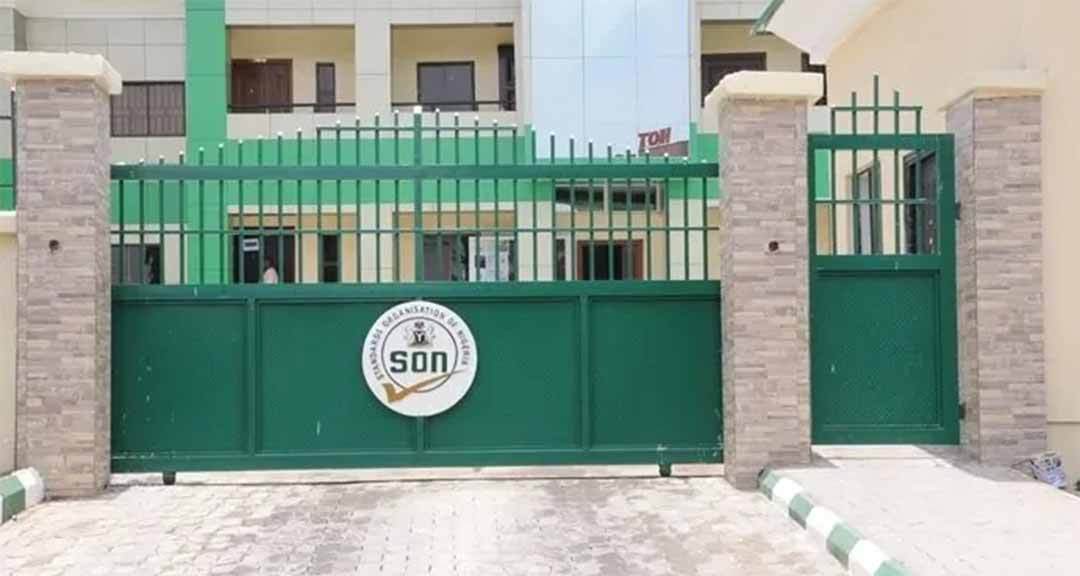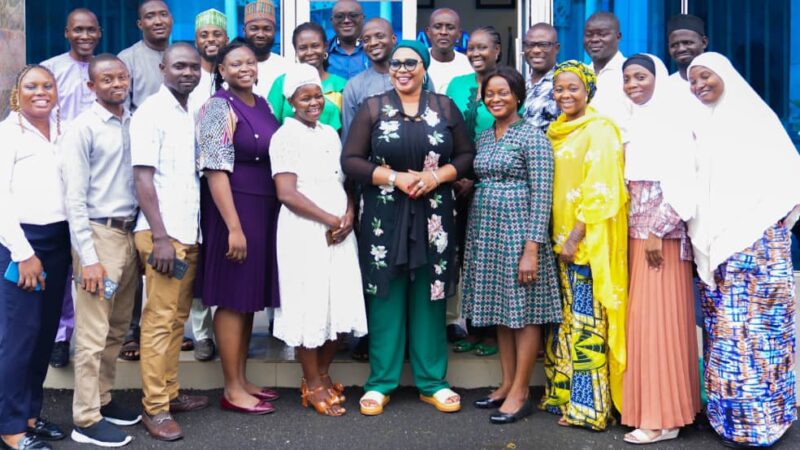SON Approves 128 New Standards In Readiness For AfCFTA


The Standards Organization of Nigeria, SON, has taken proactive measures to ensure there is no blowback, in Nigeria’s participation in the African Continent Free Trade Agreement (AfCFTA), by approving a new set of 128 Nigeria Industrial Standards.
Director General of the Standard Organisation of Nigeria, SON, Osita Aboloma said the SON Council has approved the Industrial Standards for publication, dissemination and use by Stakeholders in Nigeria to drive economic advancement by Manufacturers, Processors, Assemblers and Importers of products and services. These standards which are to further boost industrial and commercial activities in the country are in view of the imminent implementation of the AfCFTA.
According to Mr. Aboloma, the agreement has further necessitated rapid development and harmonisation of standards, conformity assessment procedures as well as mutual recognition of quality marks, to cover all sectors and facilitate trade across the continent through the elimination of technical barriers.
He enumerated areas covered by the approved standards as including civil/building technology, chemical technology, electrical and electronics, food/codex, petroleum products as well as liquefied petroleum cylinders among others.
The SON has always been mindful of its mandate of standards development, conformity assessment and Metrology assurance amongst others and with continuing fake products dominating the market space and even when those that are allegedly ‘original’ are paraded for sale even though they fall below standard, consequently, there is, without doubt, a need to ensure quality control of manufactured and imported products in Nigeria as the high volume of substandard products either manufactured or imported into the country continue to have deadly implications on the health of Nigerians and in some cases, resulted in loss of life and property.
It was in the light of this fact that stakeholders clamoured for amendment or total overhauling of the Standards Organisation of Nigeria (SON) Act, 2004.
This clamour was largely due to the fact that the SON Act, 2004 as it was, did next to nothing in ensuring that standards relating to products were being met. This was due in part to the fact that the Law did not impose strict penalties for offences and also saddled the officers of the Organisation with minimal functions and powers.
It was in a bid to cure the defects in the SON Act, 2004 that the Standards Organisation of Nigeria Act of 2015, was enacted.
The Act was enacted for the purpose of providing additional functions for the Organisation, increasing penalty for violations; and for related matters.
The SON is now saddled with the responsibility of standardization in Nigeria. Standardization is simply, the process, by which, technical standards, that are based on agreement or consensus reached by diverse entities, such as the government and standard organizations and companies and interest groups, as well as users are developed and implemented.
The SON has decisive influence on the question to what degree Technical Barriers to Trade can present a stepping stone or rather a stumbling block towards the implementation of AfCFTA.
The agreement is the best for Africa’s Integration Agenda as it is a concrete, provable culmination of the goals of African Renaissance.
The United Nations Economic Commission for Africa (UNECA) predicts that the AfCFTA, which is prioritizing the production of value-added goods and services that are “Made in Africa”, has the potential to increase intra-African trade by 52.3 per cent by eliminating import duties, and to double this trade if non-tariff barriers, especially the Technical Barriers to Trade (TBTS) are also reduced.
As the largest single free Trade area in the world, it could stimulate intra-African trade by up to USD 35 billion per year, or 52 per cent above the baseline, by 2022.







